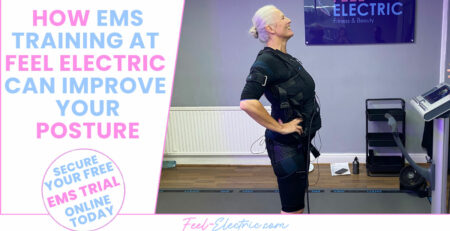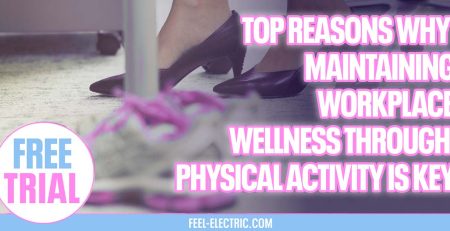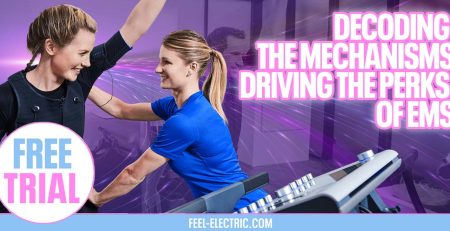Balanced Diet for Weight Loss with Feel Electric
Beth Hayton2022-09-21T10:39:52+00:00Eating a Balanced Diet
If you want to enjoy a healthy lifestyle eating a balanced diet is vital. At Feel Electric our members work with our expert trainers to create personalised nutritional guidance that provides that healthy balance in your diet. But what exactly does a balanced diet mean? Eating a variety of foods in the right proportions to achieve or to maintain a healthy body weight. A balanced diet ensures that your body gets the energy it needs to keep active right through the day. And your body gets the nutrients it needs to repair and grow. That means you stay healthy and strong and avoid gaining weight or developing conditions like high blood pressure, high cholesterol, type 2 diabetes, heart disease or osteoporosis. Let’s look at what food groups should be a part of your healthy balanced diet.
Feel Inspired by Feel Electric EMS
If just one 20-minute EMS session a week at Feel Electric studios equals a 2-hour HIIT session, what are you waiting for? There’s only one way to feel the true power of EMS training and that’s to try it for yourself! Book a Free EMS Trial Online to Tone, Firm and Lose Weight with EMS Training.
A Healthy Balance of Food Groups
While those with special dietary needs should ask their doctor or dietician for specific nutritional advice, for most people a healthy and balanced diet should include:
- at least 5 portions daily of a variety of fruit and vegetables
- higher fibre starchy foods like potatoes, wholemeal bread, rice or pasta
- some dairy or dairy alternatives like soya or almond milk
- some beans, pulses, fish, eggs, meat or other protein
- unsaturated oils and spreads in small amounts
- plenty of liquids including water and teas (at least 6 to 8 glasses a day)
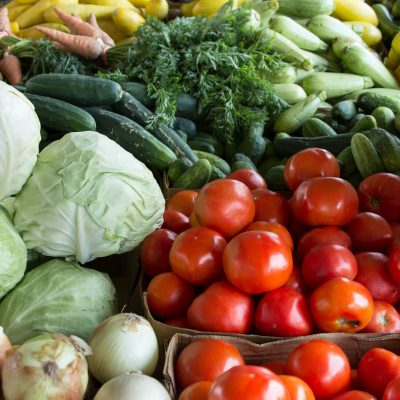
Fruit and Vegetables in Your Diet
Eating your 5 portions of fruit and vegetables every day can help you maintain a healthy weight. Fruit and veg are an excellent source of vitamins and minerals essential for the healthy functioning of the body like folate, vitamin C, and potassium. This food group is also important for dietary fibre so you’ll enjoy a healthier gut and avoid digestion problems as well as reducing your risk of bowel cancer. Even better fruit and vegetables are low in fat and low in calories. As long, of course, as you don’t deep fry your bananas!
Not sure what 1 portion of fruit and veg is? An apple or 1 pear is 1 portion and a key part of your balanced diet.
Eating Starchy Foods in a Balanced diet
You might have been warned off starchy foods like potatoes, rice or bread but omitting any food group is not a recipe for a balanced and healthy diet. Starchy foods are a good supplier of energy and also contain fibre, calcium, iron and B vitamins as well as being our main source of carbohydrates. In fact, these foods make up about a third of a balanced diet. That doesn’t mean you should now start eating loads of white bread or chips! Try wholegrain or wholemeal varieties of rice and pasta. And use wholemeal or higher fibre white bread when you want toast or a sandwich. Potatoes with the skins on are also a major source of fibre and vitamins. Make starchy foods an important part of your meal and you’ll achieve the balanced diet your body needs.
Healthy Milk and Dairy Foods
Milk and dairy foods like cheese and yoghurt can form part of a healthy, balanced diet. As well as being a reliable source of protein, dairy provides calcium to maintain bone health. Dairy does contain a high proportion of fat though so try lower fat products like semi-skimmed milk or lower fat cheese. For those whose bodies react badly to milk or those who follow a plant-based diet, unsweetened, calcium-fortified versions of milks like soya or almond are a healthy option.

Beans, Pulses, Fish, Eggs, Meat for Protein
This is a wide food category but a vital part of a balanced diet. Beans, pulses, fish, eggs, meat are important suppliers of protein which helps the body repair itself and grow. These foods are also useful sources of vitamins and minerals including iron, zinc and B vitamins. For meat try lean cuts and skinless poultry and eat processed meat like bacon and sausages sparingly to avoid too much fat in your diet. Fish and eggs provide plenty of protein as well as vitamins and minerals like the omega-3 fatty acids in oily fish. Pulses like beans, peas and lentils are likewise packed with protein, vitamins, and minerals and they’re low in fat and high in fibre. Unsalted nuts provide a lot of fibre but also contain a lot of fat so only eat a handful at a time if you want a balanced diet.
Healthy Oils and Fats for a Healthy Diet
Healthy oils and fats are an essential part of a healthy and balanced diet. They help the body absorb vitamin A, vitamin D and vitamin E which is vital to a healthy digestion. But while some fat is necessary for a healthy diet, most people eat too much saturated fat. That’s the fat in butter, coconut and palm oil. Better for a balanced diet to get healthy portions of fat from unsaturated vegetable oils and spreads like olive, vegetable, rapeseed, and peanut oil. Try to find most of your fat from those unsaturated oils; it’ll help you maintain lower cholesterol and lower the risk of heart disease.
Feel Inspired by Feel Electric EMS
If just one 20-minute EMS session a week at Feel Electric studios equals a 2-hour HIIT session, what are you waiting for? There’s only one way to feel the true power of EMS training and that’s to try it for yourself! Book a Free EMS Trial Online to Tone, Firm and Lose Weight with EMS Training.
FROM THE EMS FITNESS BLOG
Only the latest news from us, stay tuned.

Feel Electric Launches First Master Franchise in Ireland — A Milestone Moment for International Growth
We’re proud to announce a major milestone in the Feel Electric journey—the awarding of our very first Master Franchise for Ireland, covering both the Republic... read more
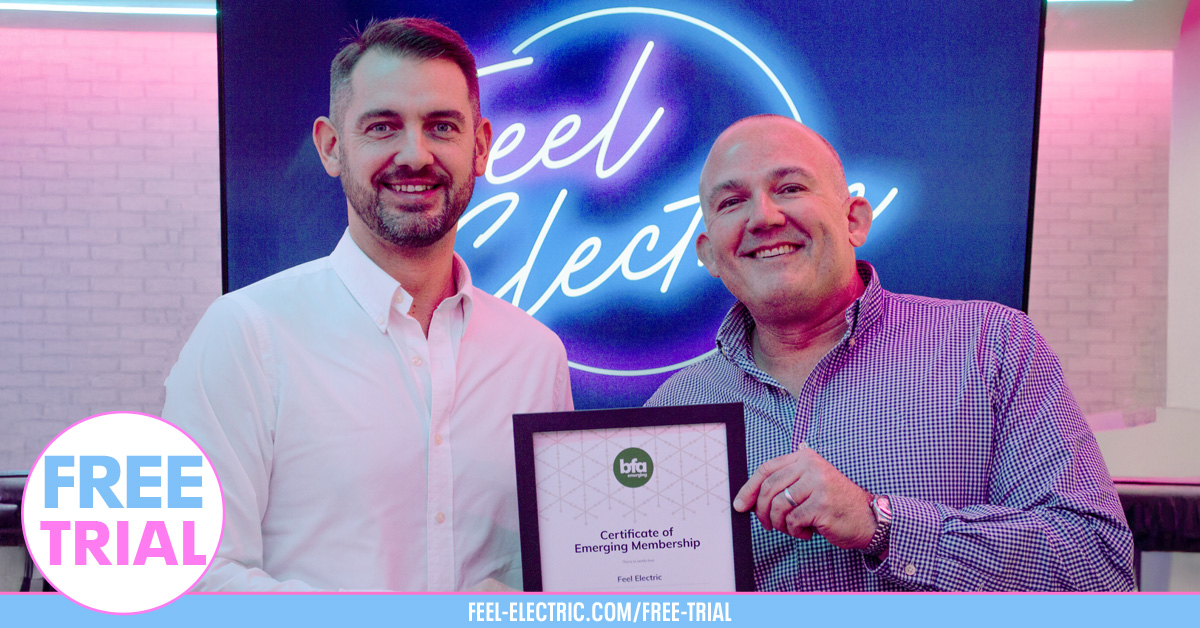
Feel Electric Franchise Discovery Event
Are you an aspiring entrepreneur with a passion for health and fitness? Feel Electric invites you to our exclusive Franchise Discovery Event on Wednesday, 12th... read more







